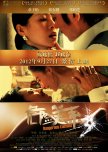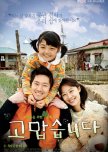
Bruce's Deadly Fingers
5 oamenii au considerat această recenzie utilă
What drew me to the movie was the cast---Lo Lieh, Nora Miao, Michael Chan, a host of famous kung fu stuntmen, and Bolo even makes a guest appearance! Bruce Le was not playing Bruce Lee, his character's name was Bruce Wong, but he tried to duplicate some of THE Bruce Lee's mannerisms which came across as laughable.
Bruce Wong was trying to find Bruce Lee's secrety secret Kung Fu Finger Book which had been entrusted to his sifu. Lo Lieh, playing the Big Bad Lee Hung, was after it as well. There you go, that's the plot. Bruce Wong's sister and ex-girlfriend were kidnapped three times. Did they get their frequent kidnapping card punched each time? There was gratuitous nudity, one scene had a naked woman being threatened with a snake. Those scenes pandering to fifteen-year-old boys dropped my rating to a 1. I gave it a 1 point bump for Lo Lieh and Bolo.
The fight scenes were actually pretty good, especially the ones Bruce Le wasn't in. Wong's buddy and an Interpol agent spent a great deal of time fighting each other and the baddies as well. The strong bit part players lent to some good fights. The nunchuck work, however, like Le's Bruce Lee mannerisms should have been omitted.
The problem the director and writer had was they didn't know what to do in between fights or how to develop anything that resembled a coherent story. Let's kidnap and threaten the women again! Show some boobs! Let's have a shot of someone walking down the street or down a hallway! How about watching someone drive a car or play cards? How about two people watching television? Should we have them say anything that would be considered plot or character development? What's that?
This might have been a watchable movie if Bruce Le hadn't tried to look like and act like Bruce Lee. All he managed to do was remind me how charismatic the original was. Michael Chan seemed to be channeling his inner Bruce, too. It might have been a watchable movie if the women hadn't been there to be objectified and tormented. They didn't need the women as bait because the "good" guys were always looking for a fight anyway. This movie had a strong kung fu cast, with good fights, and a magic kung fu book, everything a kung fu movie needs. Too bad the filmmakers took the low road into exploitation.
Considerați utilă această recenzie?

Dangerous Liaisons
5 oamenii au considerat această recenzie utilă
Această recenzie poate conține spoilere
A remake of Dangerous Liaisons made with an international cast of Hong Kong, Taiwanese, Chinese, Korean, and American actors. If this is the first version of this story you've ever seen, you might be far more impressed than I was.What I liked about this movie: The cinematography was lush and the scenes were wrapped in golden light and settings. 1930's Shanghai came to life beautifully.
What didn't work for me: Mostly the acting and the reworked story. Cecilia Cheung played the Marquise de Merteuil/Madam Mo Jie Yu role. This is a key role, she was the independent, manipulative, devious mind pulling the strings in business, society, and the bedroom. She should have been the alluring lethal danger in this movie. Unfortunately, instead of displaying the cunning and cruelty at the heart of Jie Yu, Cecilia could only manage a fake smile and a grimace occasionally, bringing almost no nuance to this multi-layered character.
Jang Dong Gun in the Vicomte de Valmont /Xie Yi Fan role was pleasing enough but lacked the sexually sinister side needed as Valmont/Fan slept his way across Shanghai and ultimately tripped himself up by falling in love. Zhang Zi Yi portrayed the Madame de Tourvel/Madam Du Fen Yu role. Her performance was perhaps the most disappointing, and I'm a fan of hers. Somehow, they transformed her into a frumpy woman, a woman who moved and dressed like an elderly little old lady. A reserved character became almost lifeless in her hands, and it was hard to understand how Fan fell so hopelessly in love with her.
The secondary younger characters, integral to the story were given short shrift and much of their important action was done offstage.
Key parts of the original story were cut out or given to other characters. Sometimes a new vision works, this retelling of the tale did not for me. Again, if you've never seen other versions of this, this interpretation may be perfectly serviceable.
Most unsatisfactorily of all, they took the bite, rancor, revenge, and tragedy out of the ending. This cast lured me into watching yet another version of this story, bitterly disappointing me in the end. Jang Dong Gun's charisma did lift an otherwise limp version of this sexual and power games movie, but his performance wasn't enough to save it for me. Instead of Dangerous Liaisons it was more like Irksome Liaisons.
Considerați utilă această recenzie?

Dumplings anyone?
The Name is a heartwarming and bittersweet love story built on longings and lies.Ri Ae offers Cheol Woo a small fortune for him to create 20 paintings and let her sign her name to them for an art exhibit. Living in what amounts to an artistic coffin in the park, Cheol Woo ultimately, if not reluctantly, agrees to being a ghost painter. Of course, not all is what it seems with the two characters.
The Name's plot is quite simplistic, with well used tropes and twists that can be seen from a mile/km away. The characters have some growth, but little depth. Cheol Woo's supposedly ground breaking artistic style peaked quite awhile back in the real world, but I understand they needed art for the displays.
Romantic movies whether comedy or tragedy succeed or fail on the chemistry of the leads, something The Name succeeded with for the most part. Jeon So Min gave a nice but not overly wrought performance as a woman with a complicated relationship with her mother, who was dealing with her own health concerns, and living with unrealized dreams. Choi Jung Won gave a charming turn as the down on his luck but rarely down in his mood artist whose success was just always out of reach. The remaining cast give perfunctory if not inspired performances.
If you are looking for something new and innovative, this is not it, unless you haven't watched many dramas. If you are looking for a comfortable, familiar romance with two likable actors this is just the ticket.
Considerați utilă această recenzie?

Această recenzie poate conține spoilere
An old school drama that dealt with AIDS, dementia, redemption, and single parenthood in a thoughtful and compelling manner.I loved how this drama did not back away from confronting the stigma HIV/AIDS patients face, especially nearly two decades ago. Once the little girl's situation was brought out into the open, the drama used each episode as a teachable moment not just for the characters, but the audience as well. The scope of her disease was narrowed down for drama purposes but I'm glad they showed how people afflicted with AIDS need support and not ostracization.
Seo Shin Ae, as little Bom, won my heart with her performance. She moved from tears, to laughter, to precocious behavior seamlessly. She was a joy to watch.
Jang Hyuk gave a stellar performance as the closed off doctor who found redemption and peace on a small island. A family of misfits washed him as clean as the shore after the waves recede-a single mother, a daughter with AIDS, and a father with dementia in a remote community was not where this ill tempered doctor ever thought he would wind up. Throughout the drama Jang Hyuk allowed us to feel Min Ki Seo's contempt, his sorrow, his compassion, and his reluctant love developing.
The drawback for me was Gong Hyo Jin's performance. Most of the characters grew and changed, all except her Lee Young Shin. Hyo Jin excels at playing self-sacrificing doormats, but aside from a few smiles with Bom, her performance was rather one note. The writers were at fault as well, they never fully developed this matriarch of misfits. Up until the very end of this drama, I never understood her, never saw a glimmer of affection for the man they told us she was falling in love with. Her mumbling, stumbling, head down performance and frozen expression took away from the emotional depth of this drama. It was hard to hope for a relationship to develop between Min Ki Seo and this woman who could not crack her heart open long enough to share a part of herself with him.
I enjoyed this drama overall and would have loved it more if the writers and actress had let us watch Lee Young Shin grow and blossom, learn to stand up for herself and her daughter, and bask in the love of the imperfect but dedicated man who fought to stand beside her. As it was, I found Min's and Bom's First Guardian Angel and Angel friendship much more heartwarming and engaging.
Considerați utilă această recenzie?

Michelle Yeoh was amazing as the young woman, Wing Chun, who had escaped a forced marriage and gone to study martial arts for years. Upon returning home and setting up a tofu shop she was often the wall between the townspeople and roving bandits. Michelle did nearly all of her own stunt work and truly shone brightly in this role.
Donnie Yen played Leung Pok To, Wing Chun’s childhood friend, who had returned after several years away to ask for her hand in marriage. He didn’t recognize her as she was dressed as a man and mistakenly thought the pretty young widow who worked in Wing’s tofu shop was her. Suitors competed for the women and there was some good-natured bed hopping. There was a love triangle, or maybe square, on second thought it might have been a love heptagon.
Donnie was as cute as a puppy in his role as Wing Chun’s would-be suitor. Leung was skilled in martial arts but not as accomplished as his childhood love. Norman Chu seemed to have a good time playing the Bandit King, he made a brash and comical villain. He couldn’t decide if he wanted to beat Wing Chun or marry her. The side characters were interesting and distinguishable--the money counting and intimidating sister who had eyes on a scholar, the scholar who was torn between Wing Chun and the young widow, the young widow who was in need of a man’s, uh, services, and a bandit who wanted the widow as his wife--all helped fill out the story in a meaningful way.
I liked this movie because unlike a lot of kung fu movies the romances weren’t tacked on and were relevant to the plot. These were all people trying to earn their happily ever afters in between kung fu fights, of course.
Yuen Woo Ping outdid himself with the creative fights, one particularly clever fight between Wing Chun, a hired fighter, and a plate of tofu was ingenious. There were no deaths or blood-soaked bodies, just lots of high wire, good old-fashioned fights with people who knew what they were doing. The action was fast, stunningly choreographed, and well-acted at the same time. Though some parts of the fights were unrealistic, who cares when they were so entertaining.
Importantly, they stuck the landing. I loved the final fight between Wing Chun and the Bandit King. I’ve never seen fight scenes quite like the ones shot for this film. The culmination of it was perfect. They also made me laugh. This film made me laugh several times and I rarely if ever laugh at “funny” kung fu movies. This was not a perfect film and some parts of it were dated. Regardless of its flaws, I enjoyed it.
Michelle and Donnie are two of my favorite actors and this film was a dream team for me complete with romance and spectacular fights. If you enjoy kung fu movies, this one is well worth seeking out.
Considerați utilă această recenzie?

Xuan Zang set out for India, when it was forbidden to leave the country, in order to bring copies of more accurate Buddhist scriptures home. Reason, laws, and the threat of death could not deter him from his holy quest.
The cinematography was extraordinary and a treat for the eyes as Xuan traveled through both cities and desert wilderness, often alone. Varying from lush green to desolate sand and stone, and later snow capped mountains, the scenery was breath-taking. Ancient ruins, temples, and shrines are visited. Often the scenery showed him barely visible, a tiny monk making his way through a vast and sacred world. The music fit with the mood perfectly.
This is a slow, reflective film as Xuan's faith meets up against disappointment and hardship. Living in a time when I can find information with the push of a button, I'm in awe of someone who was willing to risk death, imprisonment, starvation, and thirst to increase his knowledge and faith and then the overwhelming desire to bring it back home again to share. His journey took between 16 and 19 years depending on the source and he covered over 25,000 km (15,534 miles). This film gives a glimpse of what he accomplished, the people he met, the effect he had on others, and the joy the scriptures brought to him. There are a couple of narrative hiccoughs when an inexplicable time and place jump occur, but that's a rarity, and a small quibble. The censor's heavy hand causes a few shadows as well. For the most part this is a film to soothe the eyes, ears, and soul. Every moment and person is treated as holy and a gift. It may be the idealized version of his life but it was a pleasure to sink into it and let the beauty of the colors and notes and love for all life wash over me.
Considerați utilă această recenzie?

The movie starts with miners being violently killed in a dark, flooded cave. It is creepy and claustrophobic. Up out of the ground come giant killer dragonfly larvae. Much of the first part of the film is people hunting them down and attempting to kill them. Little did they know that what eats the giant insects was going to be more problematic-like letting a tiger in the back door to chase the wolves away at the front door.
Rodan was much more impressive in this movie than subsequent ones. He was huge, mobile, and destructive. Yes, you can see the wires at times if you look closely, but this old movie did quite a bit with the special effects and budget they had available to them. The miniatures were exquisite. Honda Ishiro and Ifukube Akira did a good job of bringing a giant flying dinosaur to life and making us care about him when by all rights we shouldn't.
Many times the human aspect of these movies fails. This time there was a sense of urgency and pathos from the beginning to the end. It also helped that this movie came before subsequent campy monster romps. As with Godzilla, by the end of the movie, even the human characters begin to feel sympathy for the great beasts.
Though around 65 years old I thought Rodan held up pretty well. He's now in my top three early Toho movies.
Considerați utilă această recenzie?

Little Big Women
5 oamenii au considerat această recenzie utilă
For me there were too many characters and too many conflicts to fully connect with many of the characters. I enjoyed it but I didn't love it and likely would not visit this group of dysfunctional people again. Bittersweet and heart-warming at the same time, Big Little Women at least gave us a largely female cast and shined a light on the complicated female relationships and strengths within a family.
Considerați utilă această recenzie?

Această recenzie poate conține spoilere
This is my first Filipino movie and I really enjoyed it. It's the story of a family that drifted apart after the mother died years ago.The story begins with the father of four grown children spending his birthday alone because his children are too focused on their own lives and problems to visit. On the day of his unattended party his receives news that he has cancer and only 7 weeks to live. He sends a text to his children to inform them of the news.
The eldest son took over the family store and is on the verge of bankruptcy. The second son became wealthy and successful but believes his family only likes him for his money. The daughter has three children with a philandering husband. The youngest child felt abandoned after the mother died and his siblings moved away and is now in legal trouble.
The children decide to come together on a Sunday and throw him a surprise birthday party, but old wounds flare up and arguments explode. After learning of their father's distress over their squabbles, the children agree to get along for his sake and to meet every Sunday at his house. Each Sunday the family comes together on various adventures and learn about each other in the process.
There are ups and downs in the story as wounds and secrets are revealed and healed.
I don't want to spoil the secrets, but I will say that this is not a downer or tragedy. This movie is the definition of heart-warming.
I can recommend this movie with a happy heart.
Considerați utilă această recenzie?

Această recenzie poate conține spoilere
I just finished this emotional T-drama about two young people shaped by tragedy and whether it was possible for them to overcome their tragic pasts. Story:
In this story two kids faced whatever life threw at them and most of the time it was boulders-mental illness, sexual assault, physical assault, PTSD, suicide, parental neglect, and evil outside forces. Somehow these two broken people found in each other the love and support they needed.
Both the ML and FL had to face their own individual traumas by peeling back the layers of lies and pain to heal and grow. And they had to do this while dealing with ongoing stressors and danger.
They fought for the right to walk hand-in-hand through the healing to the fulfillment of their dreams and no one was going to make it easy on them. Danger and disaster waited around every corner. Internal and external conflicts filled nearly the entire 21 episodes with little breathing room. It was a hard drama to let go of for something like sleep. It wasn’t a perfect story but it was compelling.
If you are triggered by any of the traumas listed above I would recommend not watching MARS. I don’t know that I would label this a dark drama but it does deal with very dark issues.
Acting:
I almost didn’t watch MARS because of Vic Chou. I’d only seen him in The Flame’s Daughter and was completely underwhelmed. I liked him in this drama. Maybe it was because he was rocking the David Cassidy/Uncle Jessie hairdo, but more likely it was the relaxed, natural performance he gave.
Barbie Hsu had the more difficult job of portraying a young woman in so much pain she walked and sat in self-protective postures. As the character grew and healed she portrayed believable fear and outrage. She did an amazing job.
OST:
I enjoyed it, didn’t love it.
On a somewhat related note-the production values were surprisingly high. Too often T-dramas look and sound like someone filmed them on a cell phone. I was pleasantly surprised, especially for an older drama.
Rewatch value:
I will likely go back to MARS for another visit.
Considerați utilă această recenzie?

Day of Kidnapping
6 oamenii au considerat această recenzie utilă
Flawed but emotionally engaging drama
The Kidnapping Day is one of those dramas where the main relationship was greater than the sum of its parts but not quite enough to overcome their shortcomings. And that math makes about as much sense as some of the plot holes in this drama about a loving father figure kidnapper and substitute daughter kidnappee.The strength of this drama was the relationship between Myung Joon and Ro Hee. The actors had great chemistry as the bumbling, good-hearted, desperate dad and genius 11-year-old who had never had the chance to form loving human attachments or simply play like the child she was. Once you left their nucleus, the characters and story began to break down with parts becoming repetitive and others lacking in logic. The plot trotted out the well-trod issues of police incompetence (with the exception of the lead detective) along with the requisite corruption issues although they waffled back and forth on the corruption. While I know women make up a small percentage of police officers in Korea it would have been nice to see one of the minor characters be a female officer in this overwhelmingly masculine drama. The bad guy pecking order and allegiances also shifted with similar incompetence issues. The overly dramatic villain left no furniture without his teeth marks as he chewed through the scenery. Class distinctions as they often do played a role in the story. And how far are people willing to go and who has to suffer for the good of all mankind or at least for those who have enough money? The role on which most of the drama ended up hinging was all over the place with motivations and reactions that often made little sense and the final confrontation missed the mark for me.
Despite its narrative flaws, I enjoyed this drama. Yoon Kye Sang gave a captivating performance as the father who would do anything to save his hospitalized biological daughter and the stranger in his care. His fists made up for what he lacked in strategical thinking, leaving the scheming up to the brilliant girl in his charge. Yuna demonstrated why Korea has the best child actors from any country. She portrayed not only the coldly, methodical experiment her character had been trained to be, but also the vulnerable child that needed an adult to protect her. Moments of the two playing, perhaps for the first time in her life, squealing in delight and getting her designer clothes dirty were heartwarming.
The Kidnapping Day may have had plot holes big enough to swallow The White Truck of Doom, but Myung’s devotion to the two little girls who depended on him covered those pitfalls enough to provide for an emotionally compelling drama. Roo Hee’s intellectual dominance might even leave you questioning who had really been kidnapped in this relationship.
10/31/23
Considerați utilă această recenzie?

"What is the meaning of those days?"
The Days focused on the immediate aftermath of the March 11, 2011 earthquake and tsunami and their catastrophic effects on the Fukushima Daiichi Nuclear Power Station. The events were shown from the side of the workers and their heroic efforts and the political side which was hindered by personal stakes, ineptness, and evasion of responsibility. The performances were engaging and nuanced and by far the strength of this drama based on the tragic real-world calamity."Mistake or destiny?"
When the earthquake and tsunami devastated the electrical grid, the power plant was left without electricity relying on back-up generators to keep the safety measures going. Never dreaming that a tsunami would reach the heights it did, the generators were ruined by seawater. Men in the control room were in the dark both literally and in relation to what was going on in the deadly monsters they were in charge of. Maejima was assisted by veterans Furuya and Osugi as well as younger operators who sought to do what they could only aided by flashlights.
"Forlorn hope"
Manager Yoshida Masao set up headquarters in the Seismic Safe Room to assess the damage and brainstorm responses to the critical issues. Hampered by a loss of almost all communication after the tsunami and largely cut off from the rest of the world the plant operators had to use what they had to try and determine the status of the four units. They resorted to using car batteries to attempt to open vital valves. Things went from bad to worse with aftershocks and hydrogen explosions. Yoshida sought to protect his workers as best he could even while knowing they risked their lives as they attempted to gain information by traveling into the belly of the radioactive beasts and for the workers who fought to remove radioactive debris to bring the fire trucks and the hoses needed to supply water to cool and de-pressure the escalating situations. Eventually, he made the hard decision of who would stay as he ordered the evacuation of most of the workers, knowing that those who remained might die if the worst happened.
"Our company has lost its mind."
On the political side of things, Prime Minister Yan was not advised by nuclear power experts but often those who seemed to be political appointees-who needs an economist during a nuclear disaster? The management at TEPCO was completely unprepared for such a disaster and the manuals gave no guidelines. Both the political and business advisors seemed to be more concerned about giving unpleasant news or being held accountable. They also worried about looking bad to the public and never mentioned the nuclear meltdowns by name. Their ineffectual echo chamber could have led to even more devastation if Yoshida had listened to them. Yan at one point belittled the heroes' efforts. While the people safe from harm worried about plausible deniability, they failed to supply the plucky workers with the basic supplies they needed.
"We don't have a guide, we're in it to the end."
Yakusho Koji gave a powerful performance as Yoshida. Without histrionics he conveyed the calmness and strength of the man in charge of saving the nation with his decisions. Yakusho expressed grief, horror, resoluteness, and exasperation with his face and body movements and provided a stalwart character for the others to trust in and lean on. He showed Yoshida's defiance with deftness and even humor. It has been a long time since I have been so engaged by an actor's performance. Takenouchi Yutaka, Kobayashi Kaoru, and Musaka Naomasa played the operator warriors in the dark control room who braved the dangers so close to the deadly radiation. Though their faces were often covered by protective equipment and respirators the veteran actors' performance came through. These men portrayed, like Yoshida, knew their chances of surviving were slim to none and yet they did whatever was necessary for the greater good.
"I can no longer leave here alive."
The drama displayed the events and actions almost hour by gripping hour. I was always shocked by how much the operators had accomplished when the time clock was shown. Yoshida came across as the hero of this story and the faithful men who risked their lives to cool down and calm the radioactive beast that had the power to leave a third of Japan uninhabitable for decades. The actors who played the fearless Daiichi workers gave understated and formidable performances that were compelling and emotional. The Days was a cautionary tale of human hubris in the face of nature and yet how there are still heroes among us. It is a drama well worth the time for viewing.
9/7/23
Considerați utilă această recenzie?

Această recenzie poate conține spoilere
The devil is in the details
As this is a 14 minute short film I won’t say much. You need to be prepared for very graphic talk about sex. It is not for the squeamish.The premise is a man meeting a school girl to have sex with her thinking she is a virgin. They begin to talk and he nauseatingly starts negotiating the price according to what he thinks her experience is. If you’ve gotten this far and are as repulsed as I was by him, don’t give up, keep going…
For a short film the production values were good as was the acting. The filmmakers packed a wallop of a story in those short minutes.
Again, not for the squeamish.
11/14/22
Considerați utilă această recenzie?

Brotherhood of Blades
6 oamenii au considerat această recenzie utilă
Această recenzie poate conține spoilere
It's not very often a martial arts movie comes out with strong fight scenes and even stronger acting. Brotherhood of the Blades boasted a quietly competent cast who elevated this movie above standard wuxia fare. Three Imperial Assassins and sworn brothers, though skilled with their swords had to face down death and deception from various factions. The always troublesome eunuch (this time after he was deposed) who shows up in numerous martial arts movies, once again instigated double-crossing schemes, this time imperiling the three loyal assassins.
Chang Chen led the three sworn brothers. His character, Shen Lian, though loyal to his brothers and emperor, was morally ambiguous. Willing to do whatever the situation called for, he set into motion a sword that would hang over all three of the assassins' heads.
The three hearty friends all harbored a need for money. Shen Lian wished to free a courtesan but lacked the power and money to do so. Wang Qian Yuan, as Lu Jian Xing, longed for promotion, only lacking the amount of money needed for bribing officials. Li Dong Xue as Jin Yi Chuan, the third assassin and the youngest, loved a doctor's daughter and had secrets of his own. The eunuch's waning power and wealth still proved perilous and tempting. The loyal allies had no safe quarter with the emperor and his officials. Blades aimed at them from nearly every quarter, even longtime allies proved treacherous.
The fight choreography was quite good, less reliant on wires and Olympic level gymnastics. The fights were fast, brutal, and bloody. They stretched reality in a few scenes, but so do most action movies. If I have one quibble, it's that the action scenes went on too long and were overused. As the story felt thin, perhaps it distracted from the lack of a more complex plot and character development.
The cinematography though dark and dreary fit the mood of the film. Often monochromatic, the shots worked perfectly for the bloody fight scenes. The costumes and sets were well done, befitting the time period. Brotherhood of Blades was stunning to watch without being overdone.
Chang Chen gave a mesmerizing performance, filling in gaps the script lacked. The supporting actors were all strong even though many of their characters were thinly drawn.
Brotherhood of the Blades battered away at the characters through intrigue and loss. Dark and intense, this film balanced its three main characters on the edge of a knife in the midst of hungry wolves. And set this viewer on the edge of her seat wondering who, if any, of the Brotherhood would survive.
Considerați utilă această recenzie?

Prietena Surorii Mele
6 oamenii au considerat această recenzie utilă
Also, I liked that the FL didn’t recoil from the ML’s kisses as if he was going to give her a root canal. They had a healthy tactile relationship. One of the few Kdramas I’ve seen where the couple was in a believable intimate relationship.
I found the acting solid all the way around.
Regarding the OST: I dinged it for the overuse of Stand By Your Man. They could have cut the use of that song by 80%. Bonus points though for Rachael Yamagata’s Something in the Rain. Already downloaded it.
I will rewatch all or at least parts of it when I’m having a bad day and need a smile and a warm feeling in my heart. I definitely recommend giving this drama a try.
Considerați utilă această recenzie?

 54
54 190
190 11
11






















